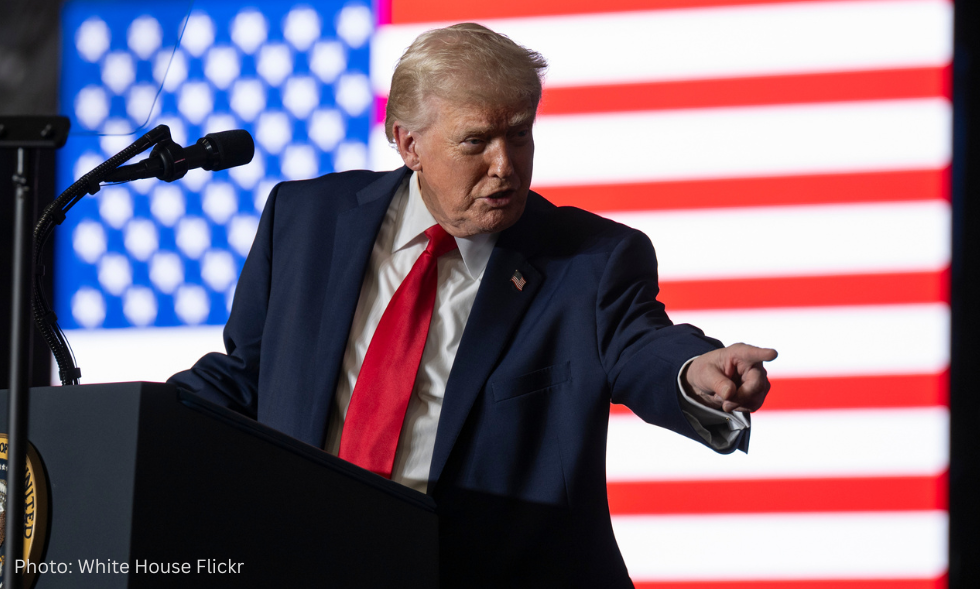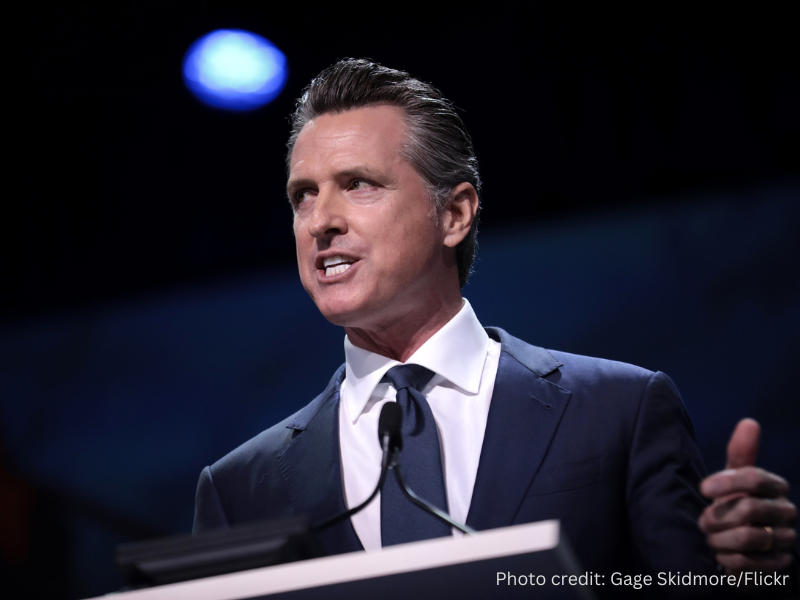A new report from the American Energy Institute (AEI) and Consumers’ Research (CR) finds that the multinational investment behemoth BlackRock, the world’s largest asset manager, is in violation of a Texas anti-environment, social, governance (ESG) scoring law that prohibits financial institutions from taking any action that penalizes a company involved in fossil fuel production for not self-imposing environmental standards that go beyond state or federal law.
ESG scores are essentially a risk assessment mechanism increasingly being used by investment firms and financial institutions that forces companies and agricultural concerns to focus upon politically motivated, subjective goals which often run counter to their financial interests and the interests of their customers. Companies are graded on these mandated commitments to promote, for example, climate or social justice objectives. Those that score poorly are punished by divestment, reduced access to credit and capital, and a refusal from state and municipal governments to contract with them.
Texas Government Code Chapter 809, established by the enacting of SB 13 in 2021, prohibits the investment of state funds in firms that refuse to do business with fossil fuel companies without an ordinary business purpose in an attempt to penalize or harm them or get them to change their business practices.
Despite this, the AEI/CR report finds that the evidence indicates “BlackRock continues to engage in conduct that meets the statutory definition of an energy boycott. Despite claims of a policy shift, the facts demonstrate that BlackRock’s systematic pressure campaign against lawful fossil fuel production and use remains intact.”
Specifically, the report charges that BlackRock “maintains proxy voting guidelines that pressure companies to adopt net-zero emissions targets not required by law; enforces disclosure regimes modeled on abandoned Securities and Exchange Commission (SEC) rules that the agency itself acknowledged would cause economic harm; opposes directors for failing to adopt these standards; supports shareholder proposals designed to restrict fossil fuel use and agricultural production; maintains a divestment policy against thermal coal companies” and “remains under litigation by the Texas Attorney General for alleged collusion to restrict fossil fuel output.”
“BlackRock’s conduct—including proxy voting demands, pressure to adopt climate disclosures that exceed legal mandates, votes against directors, support for restrictive shareholder resolutions, and an active divestment policy—clearly meets the statutory definition of an energy boycott,” the report concludes. It further adds, “Removal of BlackRock from Texas’s boycott list was inconsistent with the evidence and the law.”
Moreover, the report recommends that “Policymakers should obtain all records underlying the former Comptroller’s decision” to remove BlackRock from the list of entities state funds are prohibited to be invested with and “require independent verification of BlackRock’s representations, and consider further measures to protect Texas energy producers and energy users from discriminatory investment practices. The newly installed Acting Comptroller should also take prompt action to add BlackRock back to the state’s list of companies that boycott energy companies, consistent with the evidence and the statutory standard enacted by SB 13.”
ESG-driven financial discrimination, which BlackRock appears to be engaging in, imposes political orthodoxy at the expense of sound risk assessment, consumer choice, and economic vitality and is a threat to the Texas economy and the economic prosperity of all Texans. If what the AEI/CR report alleges is true, then the firm should absolutely lose control of whatever state funds it currently possesses. It is up to state legislators to ensure that process moves forward.
The following documents provide more information about ESG.
Behind the Smokescreen: BlackRock’s Hidden Boycott of Oil, Gas, Coal, and Cattle
https://americanenergyinstitute.com/docs/2025-07-aei-4-page-behind-the-smokescreen-blackrock-isaac-hild-1-.pdf
This report from the American Energy Institute and Consumers’ Research finds that BlackRock continues to engage in practices that meet the statutory definition of an energy boycott and argues the firm should be prohibited from managing Texas state investment funds.
Environmental, Social, and Governance (ESG) Scores: A Threat to Individual Liberty, Free Markets, and the U.S. Economy
https://heartland.org/wp-content/uploads/2023/04/2023-ESG-ReportvWeb-2.pdf
This policy paper by Heartland Institute research fellow Jack McPherrin provides a comprehensive overview of ESG and proposes specific policy recommendations to counteract ESG’s insidious influence.
ESG: A Simple Breakdown of its Components
https://heartland.org/wp-content/uploads/2022/12/PolicyTipSheetESG1.pdf
This Heartland Institute Policy Tip Sheet provides a brief description of each of the three categories comprising a company’s risk assessment based upon ESG metrics, using one of the most commonly used ESG frameworks developed by the International Business Council.
ESG: Financial Discrimination
https://heartland.org/wp-content/uploads/documents/PolicyTipSheetESG8src.pdf
This Heartland Institute Policy Tip Sheet discusses financial institutions’ discriminatory practices against consumers, and explains proposed solutions to the problem.
ESG: The Banking Industry
https://heartland.org/wp-content/uploads/documents/PolicyTipSheetESG7src.pdf
This Heartland Institute Policy Tip Sheet briefly summarizes how the banking industry has used its coercive market power to weaponize ESG compliance.
ESG: Central Bank Digital Currencies
https://heartland.org/wp-content/uploads/documents/PolicyTipSheetESG6.pdf
This Heartland Institute Policy Tip Sheet provides a brief summary of central bank digital currencies (CBDCs) and how they can be wielded against society to enforce ESG compliance.
ESG: Negative Effects on Food Supply and Agriculture
https://heartland.org/wp-content/uploads/documents/PolicyTipSheetESG5.pdf
This Heartland Institute Policy Tip Sheet provides a brief summary of how ESG is being weaponized against farmers, food production, and the agricultural industry as a whole.
ESG: The Effects Upon Free Markets
https://heartland.org/wp-content/uploads/documents/PolicyTipSheetESG3.pdf
This Heartland Institute Policy Tip Sheet offers a brief description of how ESG systems fundamentally alter free markets and the natural equilibrium of supply and demand.
ESG: The Role of the U.S. Securities and Exchange Commission
https://heartland.org/wp-content/uploads/documents/PolicyTipSheetESG2.pdf
This Heartland Institute Policy Tip Sheet offers a brief description of the role of the U.S. Securities and Exchange Commission (SEC) in coercing companies into ESG compliance.
Nothing in this Research & Commentary is intended to influence the passage of legislation, and it does not necessarily represent the views of The Heartland Institute. For further information on this subject, visit Environment & Climate News, The Heartland Institute’s website, and PolicyBot, Heartland’s free online research database.
The Heartland Institute can send an expert to your state to testify or brief your caucus; host an event in your state; or send you further information on a topic. Please don’t hesitate to contact us if we can be of assistance! If you have any questions or comments, contact Heartland’s Government Relations department, at [email protected] or 312/377-4000.





